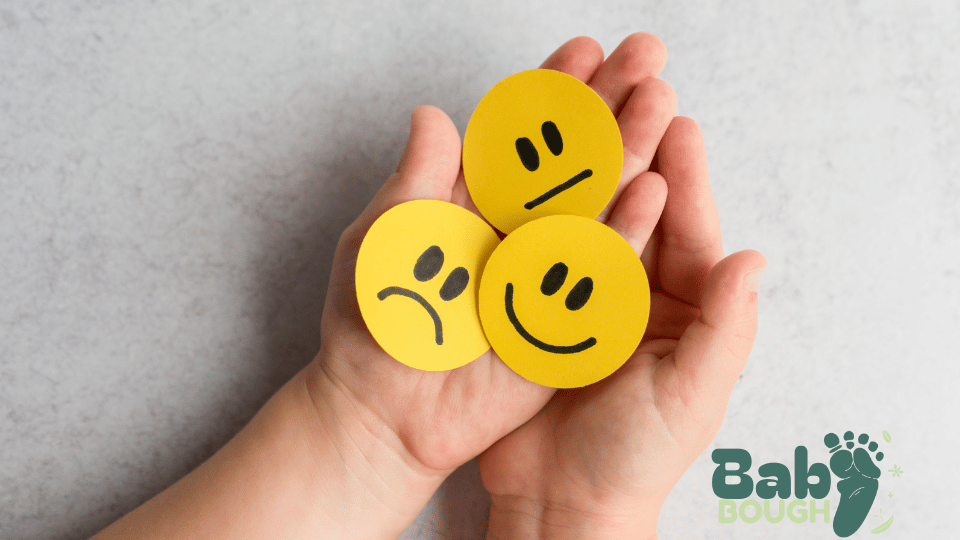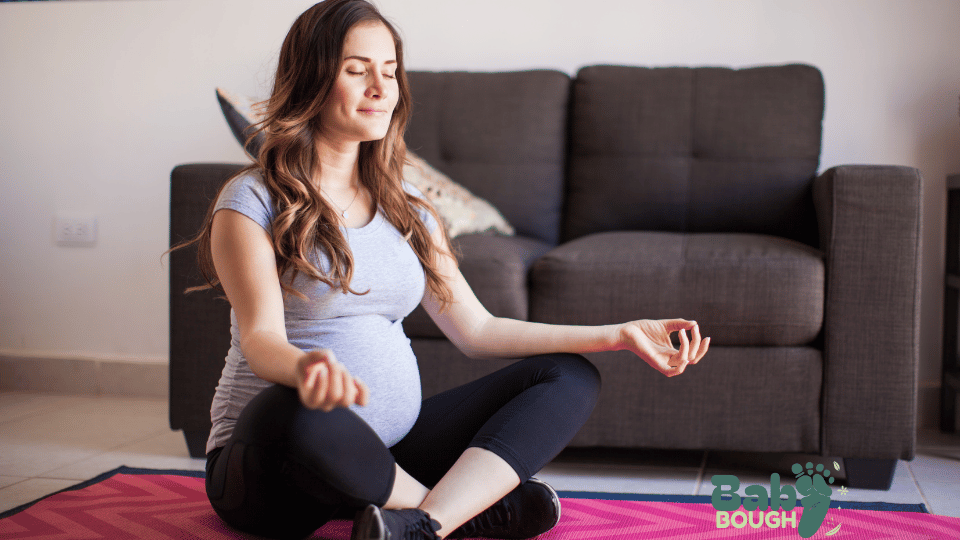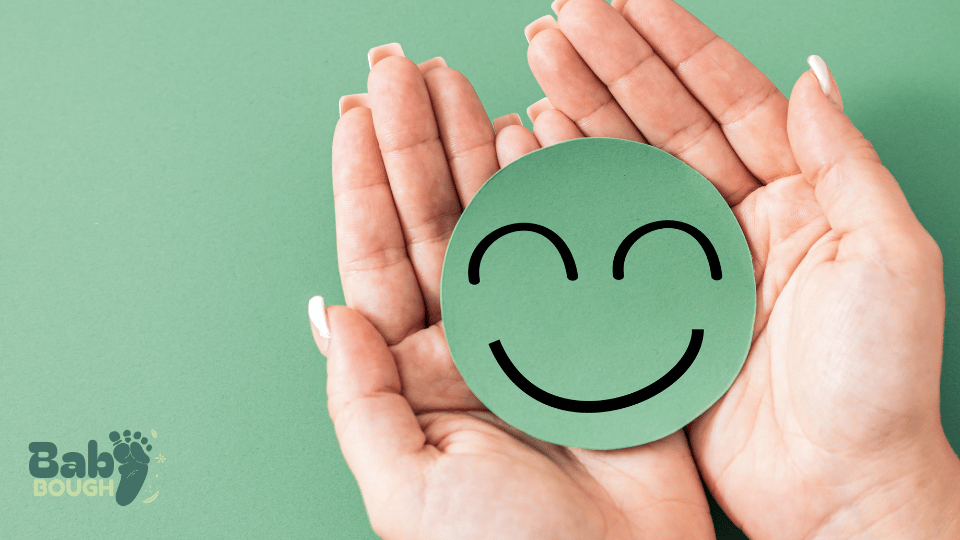Though pregnancy is an intriguing and transforming experience, emotional highs and lows are common. From the minute you realize you are expecting, you could find yourself on an emotional rollercoaster experiencing happiness, anxiety, excitement, and even self-doubt. These mood swings are quite normal and mostly caused by the hormonal changes your body is undergoing to help you be pregnant. Managing emotional ups and downs over this period depends on an awareness of these changes.
Your body is changing to support your developing baby in early pregnancy, and these changes in hormones such as estrogen and progesterone follow from this. These hormones influence your emotional well-being and mood in addition to helping your body be ready for pregnancy. Although many women find this emotional turbulence to be debilitating, knowledge of what is happening and practicing coping mechanisms will make all the difference.
We will discuss the emotional effects of hormone changes during early pregnancy in this blog article, together with strategies for maintaining your mental and emotional health. This book will help you negotiate the emotional challenges of pregnancy with compassion and care, whether your tears at commercials are triggered by anxiety or otherwise.
1. The Hormonal Changes Behind Emotional Ups and Downs

Though they also affect your emotions, hormones are absolutely essential for pregnancy. During the first trimester, your body produces two important hormones: progesterone and estrogen. These hormones are essential for maintaining a healthy pregnancy, but they can also leave you feeling emotionally sensitive, moody, and even irritable.
- Progesterone: This hormone helps relax the muscles in your uterus and supports the development of the placenta. However, it also has a calming effect on your body that can lead to feelings of tiredness and, in some cases, depression or anxiety.
- Estrogen: Known as the hormone responsible for many of the physical changes during pregnancy, estrogen also impacts mood regulation. Rising levels of estrogen can lead to emotional swings, where you might feel euphoric one moment and teary-eyed the next.
These hormonal shifts are perfectly natural, but they can make it difficult to feel emotionally stable. Understanding that these feelings are part of the pregnancy process can help you be more compassionate with yourself as you navigate the emotional landscape of early pregnancy.
Learn more about pregnancy hormones and their effects.
2. Emotional Ups and Downs: What to Expect

Although everyone’s pregnancy path is different, many women go through certain shared emotional events during the first trimester. Among them are:
- Mood Swings: One moment you’re overjoyed about your pregnancy, and the next, you’re frustrated or crying for no clear reason. These emotional shifts can happen rapidly, often leaving you feeling confused.
- Anxiety and Worry: It’s normal to feel anxious about the changes ahead. You may worry about your baby’s health, your ability to handle the challenges of pregnancy, or even how your life will change once the baby arrives.
- Fatigue and Irritability: The physical exhaustion of early pregnancy, combined with hormonal shifts, can leave you feeling irritable and emotionally drained.
- Heightened Sensitivity: You might find yourself feeling more sensitive than usual to comments, situations, or even television shows. Small things that never bothered you before can suddenly feel overwhelming.
These emotions are all part of the early pregnancy experience. It’s important to remember that there’s no “right” way to feel, and whatever you’re experiencing emotionally is valid.
3. Tips for Managing Emotional Well-being During Early Pregnancy

Although hormonal shifts are unavoidable, there are doable techniques you can apply to control your mental well-being and simplify the path. These suggestions will assist you in managing the emotional swings of early pregnancy:
A. Prioritize Self-care

Taking care of yourself physically and emotionally is essential during pregnancy. Ensure you’re eating a balanced diet, staying hydrated, and getting plenty of rest. Physical self-care can have a positive impact on your mood and energy levels, helping to reduce feelings of fatigue and irritability.
Tip: Set aside time each day for relaxation, whether it’s a short nap, a warm bath, or simply reading a book. Self-care isn’t a luxury—it’s a necessity.
B. Practice Mindfulness and Meditation

Mindfulness and meditation are effective tools for managing stress and staying grounded. Spending a few minutes each day practicing deep breathing or guided meditation can help you clear your mind and reduce anxiety.
Tip: Try a pregnancy-focused meditation app that offers short sessions designed to help you connect with your body and baby.
C. Talk About Your Feelings

Pregnancy can sometimes feel isolating, especially if you’re dealing with emotional challenges. Don’t be afraid to talk to your partner, a friend, or a family member about how you’re feeling. Sharing your thoughts can provide relief and remind you that you’re not alone.
Tip: If you’re feeling overwhelmed, consider joining a pregnancy support group, either online or in-person, to connect with others who are going through similar experiences.
More on managing emotional well-being during pregnancy.
4. Handling Anxiety and Worry

It’s completely natural to feel anxious during early pregnancy. There are so many unknowns, and it’s common to worry about your baby’s health, your own health, and the future. While some level of anxiety is normal, it’s important to address it in healthy ways to avoid becoming overwhelmed.
- Focus on What You Can Control: While you can’t control every aspect of pregnancy, you can focus on your daily habits. Eating well, staying active, and following your doctor’s advice can give you a sense of control over your health and your baby’s development.
- Limit Exposure to Stressful Content: Whether it’s distressing news, pregnancy horror stories, or overwhelming social media posts, it’s okay to set boundaries and limit your exposure to stressful content. Protecting your emotional space is crucial during pregnancy.
- Practice Positive Affirmations: Reassure yourself with positive affirmations. Reminding yourself that your body is strong and capable, and that you’re doing everything you can for your baby, can help ease anxious thoughts.
If anxiety becomes intense or interferes with your daily life, it’s important to talk to your healthcare provider. They can offer additional support or resources to help manage anxiety during pregnancy.
5. When to Seek Help for Emotional Well-being

While emotional ups and downs are common during pregnancy, it’s essential to recognize when your emotional health needs extra attention. Pregnancy can sometimes trigger more serious mental health conditions, such as prenatal depression or anxiety disorders.
If you experience any of the following symptoms, it’s important to seek help from a healthcare professional:
- Persistent Sadness or Hopelessness: Feeling consistently down or overwhelmed for an extended period could be a sign of depression.
- Extreme Anxiety or Panic Attacks: If anxiety is preventing you from enjoying daily activities or causing panic attacks, it’s time to reach out for support.
- Thoughts of Harming Yourself: If you ever feel like you’re in crisis or experiencing thoughts of self-harm, seek immediate help.
Mental health is just as important as physical health, and there’s no shame in seeking professional support during pregnancy.
More on prenatal depression and anxiety.
Conclusion:
Early pregnancy’s emotional ups and downs are a normal part of the road, mostly caused by the strong hormonal shifts your body is undergoing. Although negotiating these emotional fluctuations can be difficult, knowing what underlies them and learning how to control your emotional well-being will assist in smoothing out the process.
As you navigate the early stages of pregnancy, you can find peace and balance through self-care, a close connection to your support network, and acceptance of mindfulness approaches. Remember that it’s OK to feel, worry, and ask for help. Pregnancy is a time of immense transformation; hence, your mental health is equally as vital as your physical one.
You are not on this journey alone; by recognizing and improving your mental well-being, you will position yourself for a better and happier pregnancy.

